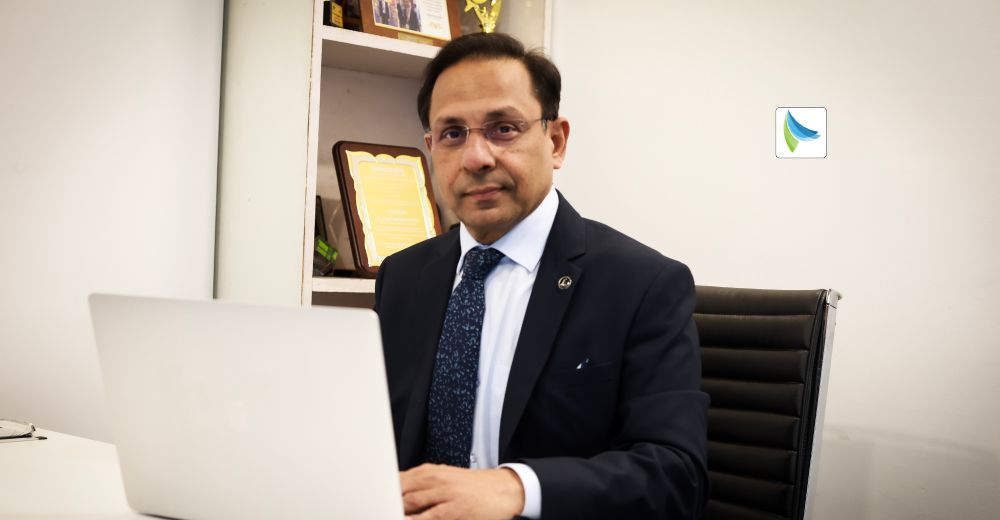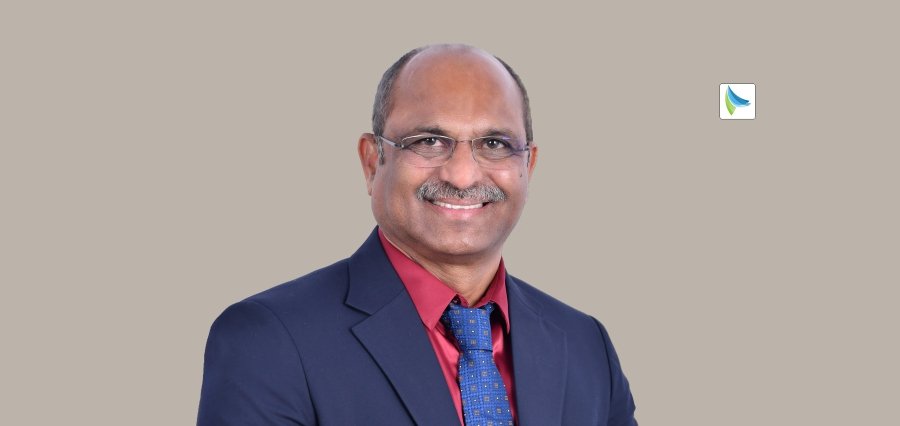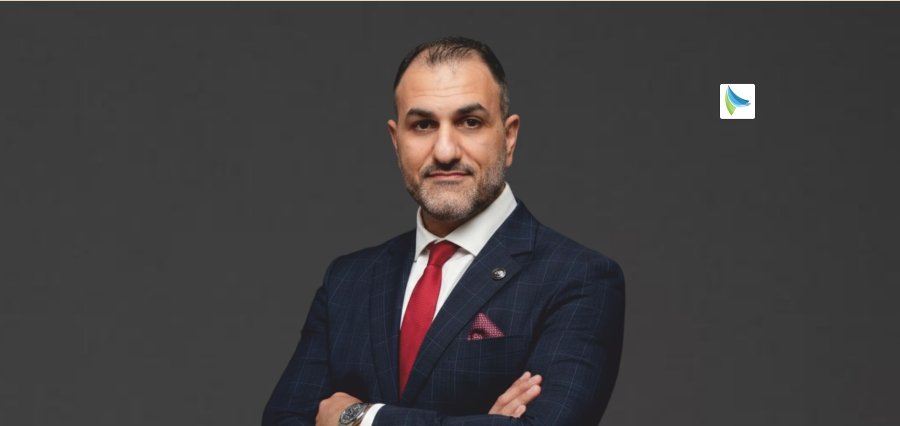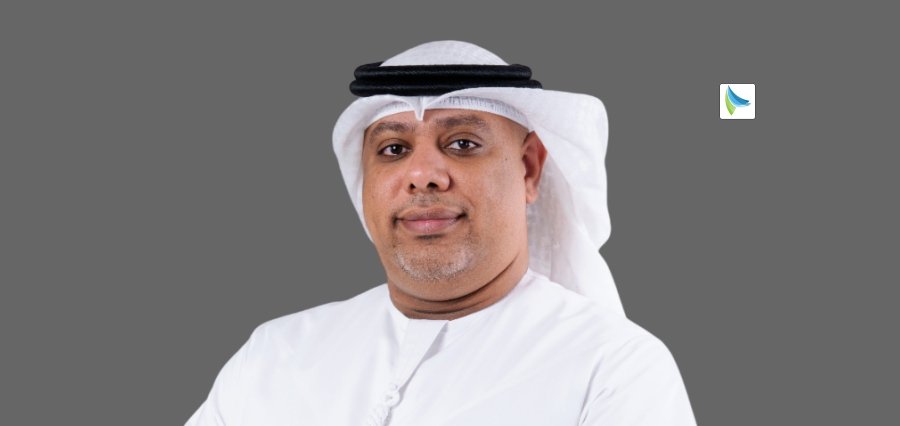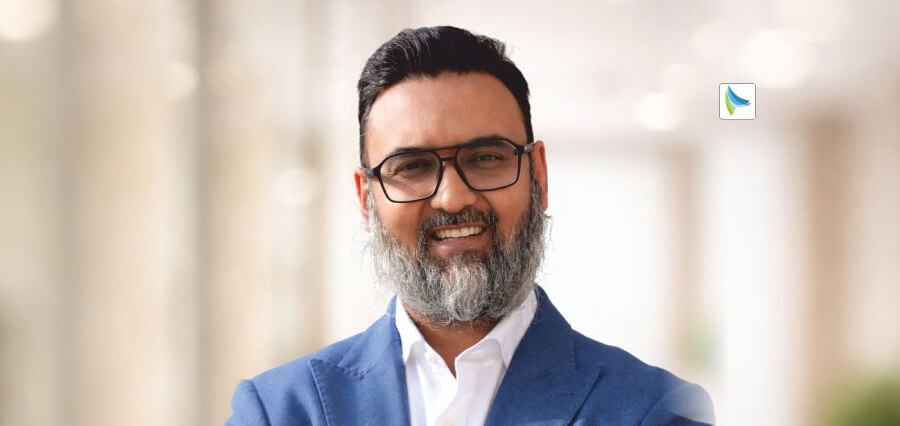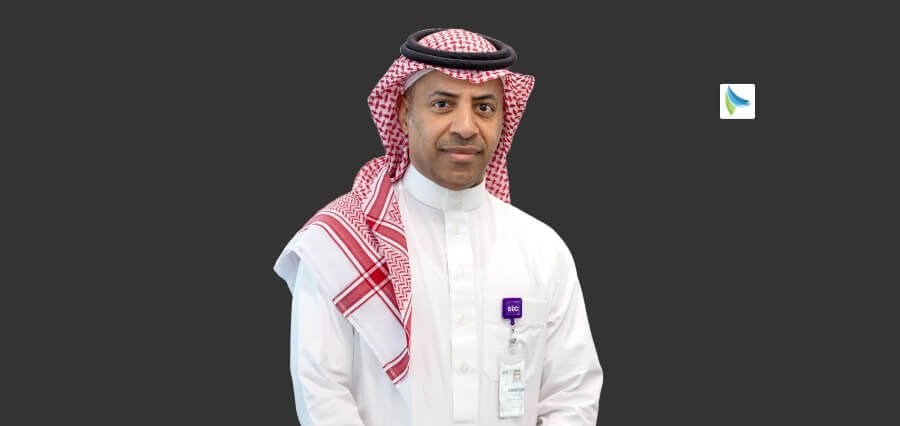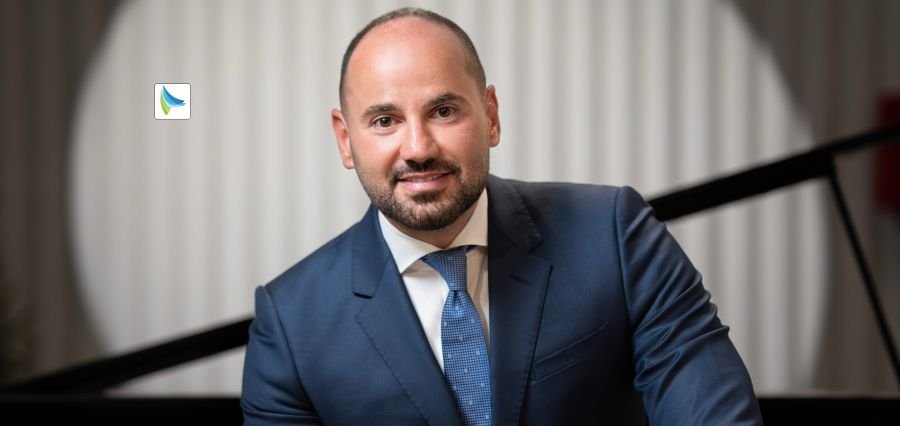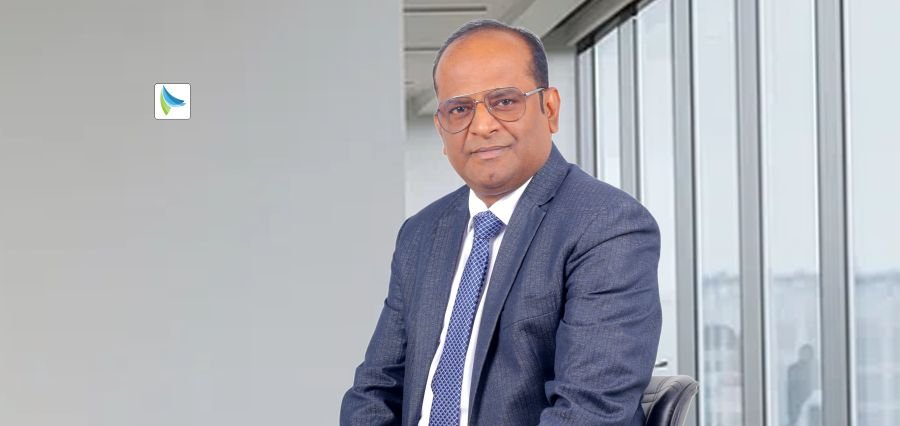Technology changes faster than most of us can handle. Many try to keep up, but a few seem to see the future before it arrives. In India’s changing tech scene, the best leaders are not only skilled. They also carry values, adjust quickly, and stay strong under pressure.
Vijay Krishan Gupta, Founder & Chief Executive Officer of Think Future Technologies, is one of those people. The growth of his company comes from making products and services that actually help people in business. But the real difference lies in how he works with technology. He balances practicality with vision and always holds on to the idea that progress should serve a purpose.
His journey began far from boardrooms and global clients. Born into a defense family, he learned early what discipline, resilience, and constant change looked like. From his school days in Delhi to heading an international tech firm, his journey has not been about following a fixed plan. It has been about curiosity, determination, and making the right choices. In the end, his story is one of daily growth and helping others grow too.
Let’s explore how one leader’s vision and expertise are redefining success in India’s tech ecosystem!
Roots in Movement and Discipline
Vijay’s early years were defined by a life of mobility, a hallmark of a defense family upbringing. “I come from a defense family—my father was in the Air Force—so we moved across India,” he recalls. These relocations exposed him to varied cultural contexts, instilling adaptability and resilience from a young age. In Delhi, he walked approximately 1.5 kilometers to and from school each day—a small but telling example of discipline ingrained early in life. Later, when his father was posted to Bangladesh, the experience felt akin to living abroad, even though it was within South Asia.
In sixth standard, he joined Dhaka’s Green Herald International School, an upscale missionary institution with a diverse student body representing 10–15 countries. “Many teachers were Indian, some Bangladeshi—highly educated and inspiring—and the school’s focus on reading, writing, arithmetic, and strong values shaped me,” Vijay notes. These formative years cultivated both academic curiosity and a global perspective, preparing him for challenges that transcended national boundaries.
Subsequent postings brought him back to India, through Meerut and Delhi, before settling in Kanpur for the completion of his senior secondary education. This transitory childhood, while challenging, imparted crucial lessons in observation, cultural sensitivity, and the pursuit of excellence, which would later become foundational pillars of his professional philosophy.
In Kanpur, he applied the same discipline and curiosity that had defined his schooling years, focusing his energies on academics and problem-solving. The effort culminated in his admission to the Indian Institute of Technology Kanpur, one of the country’s most competitive institutions. It was here, among some of the brightest minds in the country, that he began shaping the ideas and choices that would define his career.
Choosing the Path Less Travelled
At IIT Kanpur, Vijay initially secured admission in mechanical engineering. However, a seemingly incidental conversation during Class 11 redirected his career trajectory. He overheard a discussion about a Kerala-based company called Solutron, which offered employment for computer science graduates at ₹10,000 per month. That snippet of information sparked a determination to pivot.
Even though computer science was a nascent field at IIT during 1981, Vijay pursued a branch change. The decision, while practical, also reflected a deep intuition for emerging opportunities. “Even though computer science was a very new branch at IIT at the time—this was 1981—I worked hard, got permission to change my branch, and switched to computer science. That one conversation I overheard ultimately drove my choice of department.” This early instance of strategic foresight underscores his capacity to identify and act on opportunities ahead of the mainstream curve.
Formative Experiences and Lifelong Lessons
Vijay’s formative years were punctuated by moments that profoundly shaped his worldview. From the sirens of 1965 in Chandigarh to the anxieties of the 1971 war, he recalls early encounters with uncertainty and risk. These events cultivated both empathy and courage, influencing his approach to problem-solving and leadership in later years.
His academic journey was equally transformative. At Green Herald, he struggled initially with English but found a mentor in Dr. Shamim Ahmad, a young MBBS student. Through structured teaching and motivational quizzes, Dr. Ahmad instilled both discipline and curiosity. Vijay recalls, “In seventh a young teacher, Dr. Shamim Ahmad—an MBBS student, about 19—changed things: in 45-minute classes he taught ~40 minutes, then sprang a quiz, and toppers or 10/10 scorers earned large, high-quality posters of airplanes and cars (often fighter planes). It was hugely motivating; we had several classes with him daily, and that’s when I really took off.”
Sister Imalda, the principal, provided further guidance in precision and execution. A zero on his first essay due to illegible handwriting became an opportunity to learn calligraphy and perfect presentation. These experiences imparted enduring lessons in diligence, attention to detail, and the power of incremental improvement.
Among the philosophical tenets that stayed with him, one stands out: “Compete with yourself”—a lesson emphasizing self-improvement over external comparison. He credits this advice for shaping his ethos both personally and professionally, teaching him to measure progress through self-reflection rather than external benchmarks.
The Spark of Technological Curiosity
Vijay attributes his initial fascination with technology to Dr. Shamim Ahmad, who introduced him to How Things Work, a book that explains mechanical and functional principles. “Thanks to Dr. Shamim Ahmad, I also discovered the book How Things Work, which explains how virtually anything functions. It sparked my interest in engineering and taught me that things are logical, engineered, and follow physics—so you can work backward to fix or understand them.” This early engagement with systems and logic laid the groundwork for his eventual career in computer science and entrepreneurship.
From Employee to Entrepreneur
Initially, entrepreneurship seemed an abstract concept, distant and capital-intensive. Graduating in the mid-1980s, Vijay aimed for a secure job. His professional journey began with a role at an Apple distributor in India, where he worked on library automation and multi-language software. By 1989, the advent of Windows PCs offered an opportunity to leverage existing knowledge into product development.
Recognizing a market need and a moment of technological alignment, he and his colleagues decided to bootstrap. This pragmatic approach marked the beginning of a series of successful ventures, including InPage.com. Vijay reflects, “Customer pull drove it. With Windows newly out and priced for mass adoption (Apple was 3–4 times costlier), a Windows product would scale; we had a validated problem, and the only question was delivery speed. No epiphany—just right place, right time, and a pragmatic choice to bootstrap and get ahead.”
Lessons from Building InPage.com
The development of InPage.com illustrated crucial entrepreneurial lessons, particularly the pitfalls of perfectionism. Despite beginning work in 1991, the product’s launch faced delays due to excessive refinement by his IIT batchmate. By instituting a hard deadline—booking a booth at Pragati Maidan—Vijay enforced a disciplined release schedule. “Perfection is the enemy of good,” he explains. The strategy paid off: early customers validated the product’s value, and it went on to dominate DOS-based competitors, a testament to the impact of timely execution over idealized design.
The Genesis of Think Future Technologies
Following success with multiple products, Vijay realized scaling beyond InPage.com required a different approach. He and his team shifted from product ownership to providing product development services for clients—a model that leveraged their expertise without necessitating substantial capital investment. Thus, Think Future Technologies was born. The company’s first business originated through IIT alumni networks, demonstrating the enduring value of professional relationships.
From inception, Vijay’s vision emphasized people and process. He notes, “From day one we’ve been employee-first—our people are our eyes and ears with customers—and by caring for, understanding, and training them well, they deliver great customer experiences.” This philosophy underpins the firm’s approach, creating a culture of ownership and innovation.
Evolving Vision and Strategy
Over the years, TFT has shifted from a product-first orientation to a services-led model, while retaining a product capability. This evolution reflects market trends where integration, composability, and customer experience often supersede standalone product offerings.
Leadership challenges, particularly in the early stages, required Vijay to be deeply involved in hiring, onboarding, and mentorship. He shares a pivotal memory: “I still remember our second hire: a sharp-looking candidate walked in with his résumé, said he was looking for a job, and we hired him. He opened our eyes to what we’d been missing while laser-focused on products—Java, Eclipse, the broader ecosystem—and from there we really scaled up.” Such engagements exemplify his commitment to nurturing talent while maintaining strategic focus.
Balancing Innovation and Stability
A central tenet of Vijay’s leadership is safeguarding operational stability while fostering innovation. He likens this to building a cake: “Think of a cake: the base matters most; cream and icing are extras. We focus on the base—projects running well and customers cared for—which creates room to innovate.” Innovation, in his framework, is incremental, practical, and oriented toward measurable improvements in cost, time, or quality.
This philosophy has enabled TFT to explore areas like RPA (AutomationTwin) and healthcare solutions (YHealth), leveraging bench strength for parallel development while sustaining client satisfaction and operational reliability.
Adapting to Unforeseen Challenges
The COVID-19 pandemic tested TFT’s preparedness and resilience. Fortunately, the company’s prior adoption of flexible work arrangements and laptop issuance ensured minimal disruption. Safety, work-life balance, and strategic cost management—such as halving office space—allowed TFT to navigate the crisis effectively. The experience reinforced the importance of foresight, agility, and employee-centric policies in sustaining business continuity.
Long-Term Vision and Philosophy
Vijay’s approach to long-term planning eschews rigid targets in favor of quality, adaptability, and value creation. He emphasizes cultural adoption of AI and continuous incremental improvement: “If something takes an hour today, make it 59 minutes tomorrow; if you shipped three bugs, aim for zero next time.” This mindset reflects his broader vision of positioning TFT as the technology company of choice for diverse clients, focusing on domain depth and practical solutions rather than merely expanding headcount or revenue.
Guiding Principles and Leadership Values
Two qualities define Vijay’s leadership: fairness and integrity. In moments of conflict or decision-making, he asks, “Am I being fair?” and ensures alignment with both employee interests and organizational objectives. Meticulous adherence to commitments reinforces trust and credibility, setting a tone that permeates the company culture. These values not only inform internal dynamics but also shape client relationships and strategic partnerships.
Future Trends and Opportunities
Looking ahead, Vijay is particularly excited about AI and the open-source movement. Reflecting on historical experience with pattern-matching English-to-Hindi translation, he notes, “What’s changed with GenAI is real language understanding…That shift unlocks huge possibilities: computers already operate at scale and speed; add language understanding and you get agentic AI, on-floor assistants, even robots.” Complementing this is the democratization of technology via open-source contributions, which accelerates innovation and reduces entry barriers for emerging teams.
Lessons Learned and Advice for Entrepreneurs
Some lessons come hard but leave lasting impact. Vijay recalls a struggle with mathematics in Class 7, which taught him the importance of triangulation—verifying results against reality. “That habit of practical verification changed everything—by the final, I scored 95/100—and the lesson has stayed with me ever since.”
To young entrepreneurs, he offers pragmatic counsel: avoid redundant reinvention, understand customer needs, and prioritize delivering tangible value before seeking external funding. “Create something valuable first. If customers will pay, you’ve proven worth—then capital follows.” Speed, practical iteration, and demonstrable outcomes remain his cornerstone recommendations for navigating today’s fast-paced tech landscape.
A Legacy of Practical Innovation
Vijay’s journey, from a mobile childhood and disciplined schooling to pioneering software products and leading Think Future Technologies, exemplifies the intersection of curiosity, strategy, and human-centered leadership. His story underscores that technological transformation is not merely about code or capital—it is a cumulative effect of experiences, mentorship, ethical grounding, and the courage to act pragmatically. Through TFT, Vijay continues to blend innovation with operational excellence, inspiring a new generation of leaders to balance ambition with integrity, foresight with adaptability, and human values with technological advancement.






